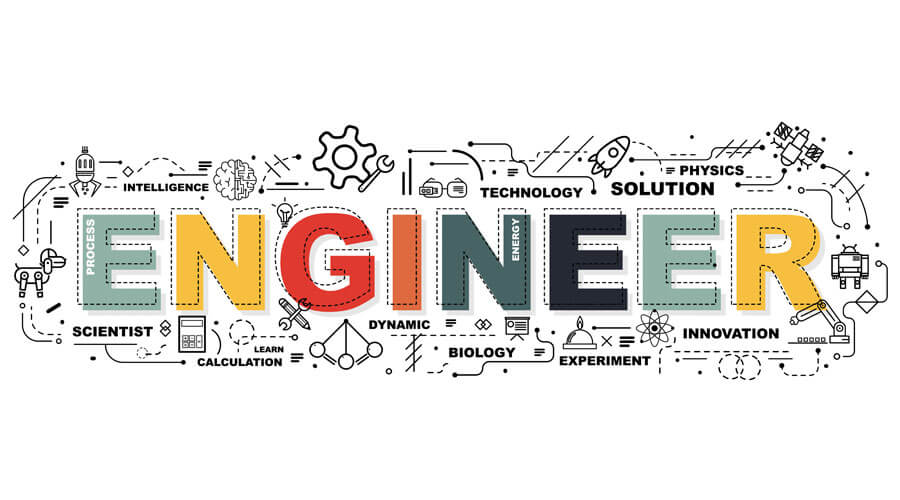Updated February 2, 2023
Bachelor of Technology (B.Tech)
The most popular and rigorous undergraduate engineering course, Bachelor of Technology (B.Tech), is available to those who have completed their 12th grade with a science or a three years diploma. Because numerous colleges offer it to those interested, it is one of the most favored choices among young students in India.
Engineers are among the best-paid professionals in the world, especially in the West. Because of this, many people in India want to become engineers. After completing their 12th class, most science students choose to major in engineering and pursue a B.Tech. In simple words, we can say that “An undergraduate course to become an engineer is B.Tech.”
(Image Source: freepik.com)
About this Degree
The Bachelor of Technology (B.Tech) is a four-year undergraduate program. After the completion of the program, you get an engineering degree. The length of the program can vary from country to country. There are different fields inside the B.Tech.
Students can enroll in the following B.Tech disciplines based on their interests:
- Computer Science Engineering
- Electronics and Communication Engineering
- Electrical Engineering
- Civil Engineering
- Mechanical Engineering
- Petroleum Engineering
- Chemical Engineering
- Industrial Engineering
- Aerospace Engineering
- Aeronautical Engineering
There are several other fields also in B.Tech. You can be an engineer by graduating in any of the abovementioned fields.
(Image Source: freepik.com)
Eligibility for B.Tech
To be eligible, you must have finished your 12th board exams with at least 50% overall marks or an equivalent CGPA from a recognized board, preferably in the science stream. In India, one who has completed a 3-year diploma program after passing 10th grade can also take admission directly in the second year of this degree.
Admission Process of B.Tech
There are two ways to apply for a Bachelor of Technology (B.Tech) program.
1. Entrance-based: In Entrances based exams, assess the candidate’s performance on a national, state, or college-level entrance test. A candidate goes through a counseling process before getting admission.
JEE Mains and JEE Advanced are the two most popular national-level exams to get seats in IITs and NITs. Institute-specific exams like BITSAT, VITEEE, SRMJEE, etc., are also conducted by specific renowned institutes for admission into this course. State-level exams, such as UPSEE, MH CET, WBJEE, etc., are also conducted for admission into government colleges of that state.
2. Merit-based: Admission is granted solely based on the candidate’s qualifying examination score. Some colleges may use qualifying tests to create an admissions cutoff list. Some private institutes also consider a valid JEE Mains score for admission.
Course Fee
B.Tech fees vary across private and public universities. For private universities, the fee can be 1-4 lakhs per annum, and for government institutions, it can range between 50K-90K per annum.
B.Tech college fees are affected by various factors, such as educational facilities, college placements, curriculum, and other facilities.
What to do after this degree?
After completing their B.Tech, students may choose to work or further their education. They have the option of finishing their M.Tech or pursuing an MBA. After graduation, a B.Tech candidate may pursue an MBA to advance their career.
Companies like to hire people with experience and knowledge in administration because it helps with logistics and technical skills. Some of the most common higher education options for B.Tech graduates are as follows:
- MBA
- Tech
- D.
- PGDM
When it comes to jobs, this sector has many opportunities. One can easily get a job based on their skills and knowledge.
Every year private companies hire several engineers. Engineer jobs are available both in the public and private sectors.
Some of the top companies are:
- Accenture
- Infosys
- TCS
- Cognizant
- SAIL
- BHEL
- Tata Motors
- DRDO
- Bajaj
- GAIL
- ONGC
If you can start your own business, you should do so. Many talented engineering graduates are currently working on their startups.
Salary and Growth Aspects
Salary in this sector is entirely dependent on experience. Once you gain experience, your income will far exceed your expectations.
An engineering graduate’s starting pay will range between Rs 2.4 lakhs and 3.6 lakhs per annum. After gaining expertise, you can earn a handsome salary. The salary of an experienced graduate will vary from 5 lacs to 10 lacs per year, depending on the firm for which you work. Engineers are also in high demand in foreign nations with attractive pay packages.



